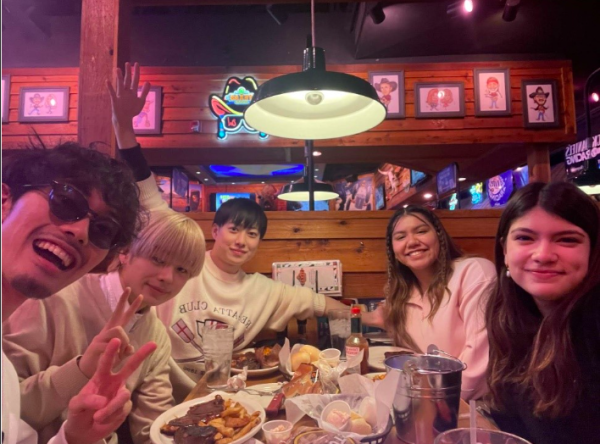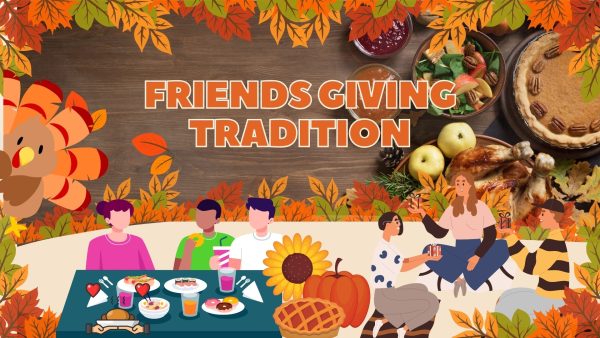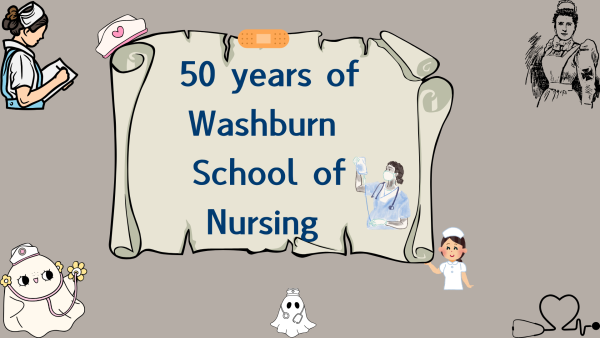OPINION: Cultural barriers impact going vegan
Vegans are well known for telling other people they are vegan as soon as they meet someone. I am breaking that tradition by revealing that I am a vegan in my second sentence. If you are not in the know, ethical veganism is a stance against the consumption of animal products, but vegetarianism simply means not consuming animals directly, mostly in the form of meat.
The fact that “cheese and milk and eggs and meat is murder” doesn’t have the punch as “meat is murder” is reflective of the challenge that all ethical vegans will go through in their attempts to persuade others or to explain their views.
The best way I can explain my position is by establishing this one idea: The trait that should make us care about creatures is their capability to suffer. If you ask anyone why something is bad or evil, their argument will always come down to human suffering. Would it be bad to hit someone if they felt no pain? Yes. They would still feel disrespected. Why is disrespect bad? Disrespect is bad because humans have emotions and would prefer to have them in a positive state.
Creatures have complex emotions, too, but this is frequently overlooked and undermined if they are the animals we associate with food. A mother cow is upset when her calf is taken from her, which is the industry standard. A pig is upset when they have no living room to move and play in freely. A chicken is in pain when they are in crates small enough to break their bones. These conditions that I’m describing are the industry standard.
If you are buying animal products then it is highly likely you are paying for this brutal treatment of creatures. Factory farms can not continue to exist without the demand for them.
If you are told that the creatures are raised in good conditions, then chances are you are being lied to with meaningless and unenforceable terms such as “free range.” Even though vegans will likely have views of why eating cows in giant pastures is bad, my main point is that agriculture has progressed to the point where there is an extreme economic incentive for animal abuse.
This isn’t meant to imply that ethics are the only reason people go vegan. Many people have reasons to adopt plant-based diets outside of nonhuman animal focussed ethics. Some individuals adopt plant-based diets to curb the emissions from factory farming and others go plant-based for their health.
Although plant-based diets are desirable for their environmental benefits, health benefits or moral reasons, adopting a plant-based diet is difficult for some people.
Katrina Escobar, senior psychology major, conducted research on gender differences regarding food preferences and attitudes toward plant-based diets. If you are a fellow Washburn student or an educator, I would highly recommend checking out the large poster about Escobar’s study which you can find on the second floor of the Henderson Learning Resource Center. Escobar brought a fresh perspective on how men and women perceive food with different cultural values.
Escobar emphasized the cultural aspects of meat stating that eating meat is also related to identity because it is associated with masculinity. This makes vegetarianism and veganism more difficult to pursue for men in specific because plant-based diets are unfortunately associated with femininity.
Witt Spiller is a senior philosophy student at the University of Vermont. Although Spiller’s main focus is on the ethics of veganism, Spiller is also knowledgeable about the cultural role of veganism because of leading a veganism club at his university since he was a freshman. Spiller also happens to be my brother and the person that sparked my interest in veganism.
Although he is a vegan himself, he states the greatest barriers to plant-based diets vary, but major themes are health and a lack of physicians recommending it to people with cardiovascular disease, obesity or high blood pressure.
Although he believes that veganism is sufficient for all prior mentioned conditions, an abundance of misinformation exists about nutrition and dieting, especially veganism. This misinformation can even extend to people without any severe health conditions or allergies with absurd examples like claiming vegans will have more estrogen because soy has estrogen. With any deeper inquiry, statements like these can be proved false. Soy has phytoestrogen, which is estrogen for plants and will thus not affect humans the way hormone replacement therapy does.
In fact, high quality research already exists that advocates the nutritional sufficiency of vegan diets. In a study from the American Dietetic Association, the association found that when appropriately planned, vegetarian and vegan diets are nutritionally adequate for all individuals.
This does promote that veganism does not inherently harm an individual’s health.
One barrier to entry that Spiller stressed is the accessibility to tasty/nutritious foods in some areas.
The areas he is referring to are called food deserts, in which it is difficult for people to find nutritionally adequate foods in a cheap and time efficient manner.
When keeping in mind these difficulties, vegans should be careful to not take the difficulties of going vegan lightly.
Although ethical vegans believe that veganism is something for everyone as well as something everyone should consider, we are at a stage in our culture where veganism is often associated with identity. This identity can be harsh and make people accept vegans and vegetarians less, but we should strive to recognize that vegans and vegetarians are not simply stereotypes.
Edited by Glorianna Noland and LeSha’ Davis
Your donation will support the student journalists of Washburn University. Your contribution will allow us to purchase equipment and cover our annual website hosting costs.














